
Scientific programme
![]()
The detailed scientific programme is
available on line.
Basically, the programme will be structured along 7 parallel technical sessions, allowing about 450 oral presentations,
including keynote lectures (download the grid). Plenary lectures listed below will aim to offer an overview of recent significant achievements in different fields where fatigue is a concern.
- Stefano Beretta (Italy)
"LCF and crack growth: recent results obtained obtained by DIC" - James T. Burns (USA)
"Next generation insights into environmental cracking via coupling high fidelity experimentation, material characterization, and multi-scale modeling approaches" - Jean-Yves Buffière (France)
"3D characterisation of fatigue crack propagation in metals" - Hans-Jürgen Christ (Germany)
"Thermomechanical Fatigue – Mechanism-based considerations on the challenge of life"assessment" - Ali Fatemi (USA)
"Fatigue Behavior of Additive Manufactured Metals: Recent Experimental Data and Analysis for Ti-6V-4Al Considering Various Processing and Loading Direction Effects" - Youshi Hong (China)
"Very-High-Cycle Fatigue in Metallic Materials: Knowns and Unknowns" - David McDowell (USA)
"Applications and Directions of Microstructure-Sensitive Computational Fatigue" - Alain Santgerma (France)
"Fatigue in design and continued airworthiness of Airbus aircraft" - Constantinos Soutis (UK)
"Advances in damage mechanics and SHM of polymer composites: Achievements and challenges"
See bottom of page for a short bio of the lecturers
The programme will cover the following topics:
![]() General topics
General topics
·Cyclic deformation mechanisms and cyclic stress-strain behavior
·Crack initiation process and first stages of crack propagation
·Fatigue life: tests and prediction
·Growth of short and long cracks - Crack growth thresholds
·Low Cycle Fatigue
·Very High Cycle Fatigue
![]() Innovative approaches
Innovative approaches
·Advanced experimental methods to characterize deformation and damage processes
·Development of new models and numerical simulation approaches
·3D approach of fatigue damage
![]() Specific Domains
Specific Domains
·Corrosion Fatigue & Environmental effects
·Thermo-Mechanical Fatigue
·Creep-Fatigue interactions
·Multi-axial, variable and complex loadings
·Influence of processing (casting, forging, additive manufacturing, …)
·Residual stresses in Fatigue
·Fretting and Contact Fatigue
·Influence of surface treatments, films and coatings
·Fatigue of weld joints
·Fatigue at very high temperatures
·Fatigue of ultrafine grain materials
·Vibrations
·Long term durability - aging effects
·Fatigue of Structures
·In service fatigue failure
![]() Theoretical and Numerical approaches
Theoretical and Numerical approaches
·Fatigue behaviour modelling and simulation
·Fatigue life prediction
·Statistical approach of the durability
·Damage evaluation and Fatigue design
·Integrated Computational Materials Engineering
·Life extension
![]() Fatigue of non-metallic materials
Fatigue of non-metallic materials
·Polymers and Composites
·Semi-conductors and Ceramics
·Concretes
·Biomaterials
·Hybrids and architectured materials
![]() Industrial case studies
Industrial case studies
·In transportation (automotive, aeronautics, naval, ...)
·In energy production
·In civil engineering
·In biomedical fields
·In electronic devices.
Short bio of the pleanary lecturers
Stefano Beretta (Italy)
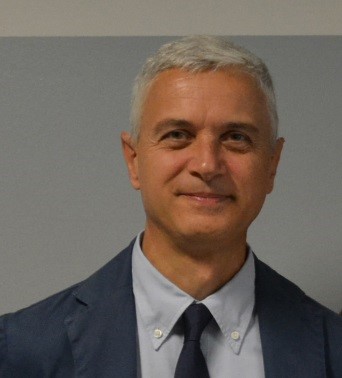
Steafano Beretta got his PhD at Kyushu University in 1997 and since then he has been making his career at the Politecnico di Milano, where he became Associate Professor in 1998 and then Full Professor in 2002. S. Beretta is a member of the Editorial Board of Eng. Fract. Mechanics. He has a long record of services for ESIS (European Structural Integrity Society): member of ESIS Exco from 2002 to 2010 as Newsletter Editor and webmaster, then Vice-President from 2010 to 2014. He also acted as Secretary of ESIS TC20 from 2000 to 2005: the activity of ESIS TCO led Stefano to cooperate to ASTM E04 Committee for writing the standard E2283-03, in which the European experiences were condensed. He is Chairman of TC24 since 2010, where he organized and hosted many international meetings (http://esistc24.mecc.polimi.it). He is Chairman and organizer of the 3rd Int. Symposium Fatigue Design and Material, held in Lecco, September 2017. His main research achievements are: leadership in the fatigue and damage tolerance assessment of railway axles together with planning of maintenance and inspections; development of probabilistic metods for defect analysis and assessment under LCF and HCF; development of a test method for measuring growth rate for short cracks under RCF condition. Recently, S. Beretta been devoting also to other two fields of research: i) the application of DIC to the analysis of fatigue damage in TiAl alloys and the accurate measurements of crack closure in different conditions (HCF and LCF); ii) the fatigue of AM materials. The latter will be the topic of his lecture.
Jean-Yves Buffière (France)
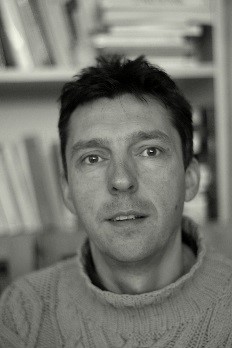
Jean-Yves Buffière graduated from Grenoble Institut National Polytechnique (INP) in 1989. After a PhD also in Grenoble (1993) and a Post Doc at Imperial College in London he was appointed Associate Professor at Institut National des Sciences Appliquées de Lyon (INSA LYON) in 1994. Since 2003 he is a Professor of Materials Science at INSA (Mechanical Engineering Department). The main focus of his research is on the characterization of damage in advanced metallic materials submitted to mechanical loading. Through collaborations with several synchrotron sources, among which the European Synchrotron Facility (ESRF) in Grenoble, he has pioneered the use of high resolution synchrotron X ray tomography for the non destructive 3D characterization of materials.
He was a co-Chair of the International Conference on Three dimensional Materials Science (3DMS-14 – Annecy), and of the former edition of Fatigue Design & Materials Defects (FDMD-II – Paris). He has supervised or co-supervised more than 30 PhD projects and post doctoral research programs in the field of fatigue of metals and three dimensional characterization; he is the co-author of more than a hundred papers on that topic and the co-author of a book on 3D Imaging in Mechanics of Materials (Hermes ed.).
James T. Burns (USA)
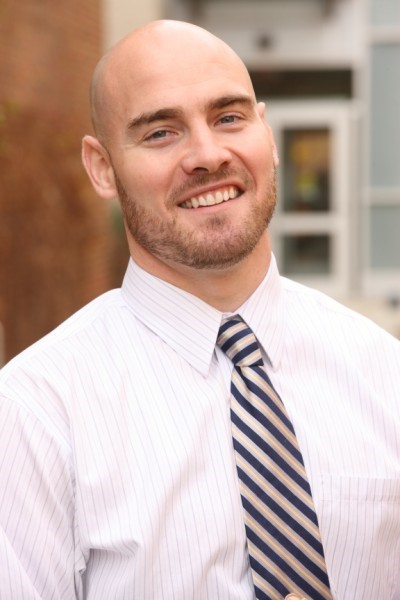
James T. Burns has been an Assistant Professor in the Center for Electrochemical Science and Engineering within the Department of Materials Science and Engineering at the University of Virginia since 2011. Professor Burns received a B.S degree from the United States Air Force Academy in Engineering Mechanics (Materials track) with a Mathematics minor in 2002. He completed his M.S. and Ph.D. in Material Science and Engineering at the University of Virginia in 2006 and 2010, respectively. After his commission he served as an Aircraft Battle Damage Engineer and Assistant Aircraft Structural Integrity Program (ASIP) manager for the C-130 from 2002-2004 and he served as a Research Engineer at the Air Force Research Laboratory – Materials and Manufacturing Directorate from 2006-2010. His research focuses on the intersection of metallurgy, solid mechanics and chemistry which is currently at the forefront of several important engineering challenges. Alloy development and modeling of the fatigue/fracture behavior of complex metal components necessitates an understanding of the pertinent microstructure and damage physics. Specifically, the interaction of localized stress/strain with environment conditions, with a particular emphasis on behavior at the crack tip. In general, experimental data from controlled environmental testing are coupled with high fidelity characterization techniques to gain mechanistic understanding of the damage process; such knowledge is used to inform theoretical and engineering level models.
Hans-Jürgen Christ (Germany)
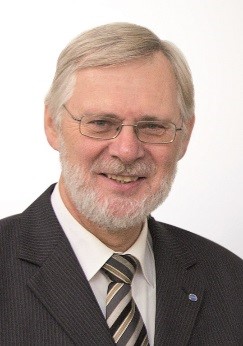
Hans-Jürgen Christ was graduated from the University of Erlangen-Nürnberg in 1980 and received a PhD from the same university in 1984 and a habilitation in 1990. After a stay as visiting scientist at the University of Illinois at Urbana-Champaign, he is since 1993 Full Professor of Materials Engineering at the University of Siegen. The main objective of research is a detailed understanding of the behaviour of metals and alloys under complex conditions representing those in technical service of engineering materials. For this purpose engineering materials are subjected to near-service conditions and both the macroscopic and the microstructural changes are analyzed. The correlation of microscopic processes with the resulting macroscopic changes in properties are used to obtain information on the relevant mechanisms and damage processes, in order to develop a better prediction of the application limits and the expected lifetime of materials under service conditions. The computer-aided description of the material behaviour based on the occurring physical processes serve for the transfer of the experimentally gained results to new applications.
He is the author or coauthor of 540 articles, 1 monograph, 2 textbooks, Editor of 5 special issues of international peer-reviewed journals, and the Editor of 4 proceedings of conferences.
Ali Fatemi (USA)
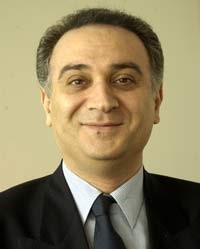
Dr. Fatemi is currently the Ring Industries Endowed Chair Professor and Department of Mechanical Engineering Chair at the University of Memphis. Prior to joining the University of Memphis in August 2017 he was a Distinguished University Professor at the University of Toledo in Ohio, where he served at different academic ranks for 30 years. Dr. Fatemi received his B.S. and M.S. degrees in structural analysis and design and his Ph.D. in mechanical engineering in 1985, all from The University of Iowa. Dr. Fatemi's primary research interests and publications involve fatigue and fracture of engineering materials including metals, polymers and elastomers, and composites. He has published over 250 refereed papers dealing with these topics, both at the basic level helping to understand fundamental fatigue damage mechanisms as well as in the applied areas facilitating applications of the knowledge gained to the design and life assessment of engineering components and structures. He has also co-authored the second edition of a popular fatigue textbook entitled Metal Fatigue in Engineering published by Wiley in 2000. Dr. Fatemi has had sponsored research projects from many companies, foundations, and government agencies. He is a Fellow of the American Society of Mechanical Engineers (ASME), a member of the American Society for Testing and Materials (ASTM) Committee E-8 on Fatigue and Fracture, and the American Academy of Mechanics. He is on the editorial board of the International Journal of Fatigue and Theoretical and Applied Fracture Mechanic. Dr. Fatemi has given invited lectures at numerous international conferences, as well as teaching short courses and seminars on topics related to fatigue for many academic institutions and industries in the US, Europe and Asia.
Youshi Hong (China)
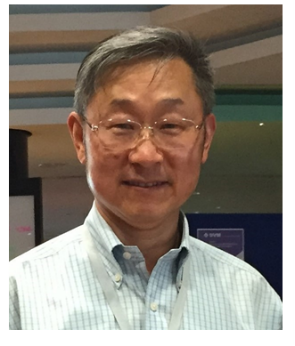
Youshi Hong is a Professor of the Institute of Mechanics (IMECH), Chinese Academy of Sciences (CAS). He was the Director of IMECH-CAS between 1998 and 2006. He is Editor-in-Chief for “Fatigue & Fracture of Engineering Materials & Structures (FFEMS)”; and Associate Editor-in-Chief for “Science China ‒ Physics, Mechanics & Astronomy”.
His research fields are mechanical behavior of materials, fracture mechanics and structure mechanics. His main research achievements are related to: high-cycle and very-high-cycle fatigue behavior of metallic materials; effects of second phase particles on deformation, fracture and stress corrosion cracking of steels; analyses of stress intensity factors and plastic zone sizes for notch-cracks and fatigue crack growth from a circular notch under biaxial stress; mechanism and modeling of collective damage evolution process of initiation and propagation for short fatigue cracks; and mechanical behavior of nano-crystalline metallic materials. He has published 290 papers in academic journals and conference proceedings, and obtained 13 Chinese patents. He received a First Grade Award of Natural Science of CAS and received a National Second Grade Award of Natural Science.
David McDowell (USA)
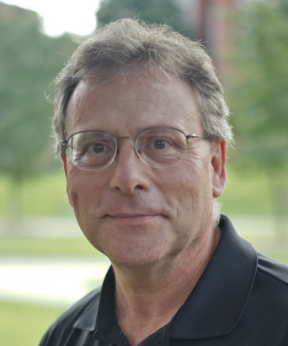
Regents’ Professor and Carter N. Paden, Jr. Distinguished Chair in Metals Processing, Dave McDowell joined Georgia Tech in 1983 and holds appointments in both the GWW School of Mechanical Engineering and the School of Materials Science and Engineering. He served as Director of the Mechanical Properties Research Laboratory from 1992-2012. In August 2012 he was named Founding Director of the Institute for Materials (IMat), a Georgia Tech interdisciplinary research institute charged with cultivating cross-cutting collaborations in materials research and education. IMat (see http://www.materials.gatech.edu) has initiatives in both campus materials user facilities and in accelerating materials discovery and development by building on materials data science and informatics approaches.
McDowell's research focuses on the development of physically-based, microstructure-sensitive constitutive models for nonlinear and time-dependent behavior of materials, with emphasis on wrought and cast metals. Topics of interest include finite strain inelasticity and defect field mechanics, microstructure-sensitive computational approaches to deformation and damage of heterogeneous materials, with emphasis on metal fatigue, atomistic and coarse-grained atomistic simulations of dislocations, dynamic deformation and failure of materials, irradiation effects on materials, and multiscale modeling. He has contributed to schemes for computational materials science and mechanics to inform systems design of materials (Integrated Design of Multiscale, Multifunctional Materials and Products, Elsevier, 2009, ISBN-13: 978-1-85617-662-0). Applications of current interest span lightweight structural materials, materials for hot sections of aircraft gas turbine engines, titanium alloys, armor and blast resistant systems, irradiated ferritic and austenitic alloys, and nanocrystalline materials, among others. McDowell currently serves on the editorial boards of the International Journal of Plasticity, npg Computational Materials, and several other journals. He is co-Editor of the International Journal of Fatigue.
Alain Santgerma (France)
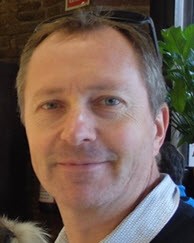
Dr. Alain Santgerma is Senior Expert in Fatigue and Damage Tolerance in AIRBUS Engineering Airframe department. He joined the Fatigue & Damage Tolerance department in Airbus in 1994 with a master degree, and subsequently obtained his PhD from the French National Institute of Applied Sciences in 1997 (subject: develop a methodology to assess structure for Widespread Fatigue Damage). He worked on many Life Extension projects such as Transall military transport aircraft, A300 and A320.
He has been involved in US and European Working Groups for 15 years, contributing to the development of new regulations in the field of Ageing Aircraft.
He led a transnational team dealing with stress policies & directives, fatigue spectra, and major test activities for all Airbus products. He coordinated the AIRBUS compliance demonstration to the Ageing Aircraft regulations for repairs and Widespread Fatigue Damage.
As a Fatigue & Damage Tolerance Senior Expert, he develops technical approaches and advises on the design, certification and continued airworthiness of most Airbus products. He deals with topics such as major tests, stress analyses, maintenance programs improvements, service occurrences follow-up, and 3D Printing.
Constantinos Soutis (UK)
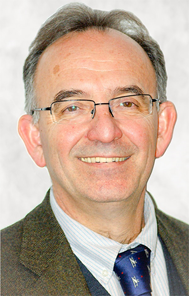
Professor Constantinos Soutis is holding a Chair in Aerospace Engineering; he is the Director of the Aerospace Research Institute and Director of the Northwest Composites Centre at the University of Manchester, UK. Prior to this, he has held Professorial appointments at Imperial College London (Aeronautics) and the University of Sheffield (1st Professor of Aerospace Engineering), and Visiting Professor positions at the Massachusetts Institute of Technology (MIT, Aeronautics & Astronautics), and University of South Carolina in the USA, ISMAN in France and Chosun University in South Korea. He is a leading authority in mechanics and failure of composites, with significant contributions on modelling damage and structural health monitoring using low frequency Lamb waves techniques. His industrial research and engineering experience includes work with the Structural Materials Centre of the British Defence Evaluation & Research Agency (visiting research fellow, 1995-2001), QinetiQ (Trusted Expert, 2001-2003), Cambridge Consultants, Dowty Propellers, Cytec Materials Engineering and ABB Research in Switzerland. Professor Soutis is the author or co-author of over 400 archived articles, which include more than 280 ISI listed journal papers; some 30 PhD students have qualified under his supervision and guidance. Professor Soutis is the Deputy Editor of Applied Composite Materials Journal, Consultant of the Editorial Committee of the Chinese Journal of Aeronautics, and Associate Editor of the RAeS Aeronautical Journal. On 5 August 2014 Professor Soutis was elected as a Fellow of the Royal Academy of Engineering. The Academy's Fellows represent the nation’s best engineering researchers, innovators, entrepreneurs, business and industry leaders. Election to the Academy is by invitation only.